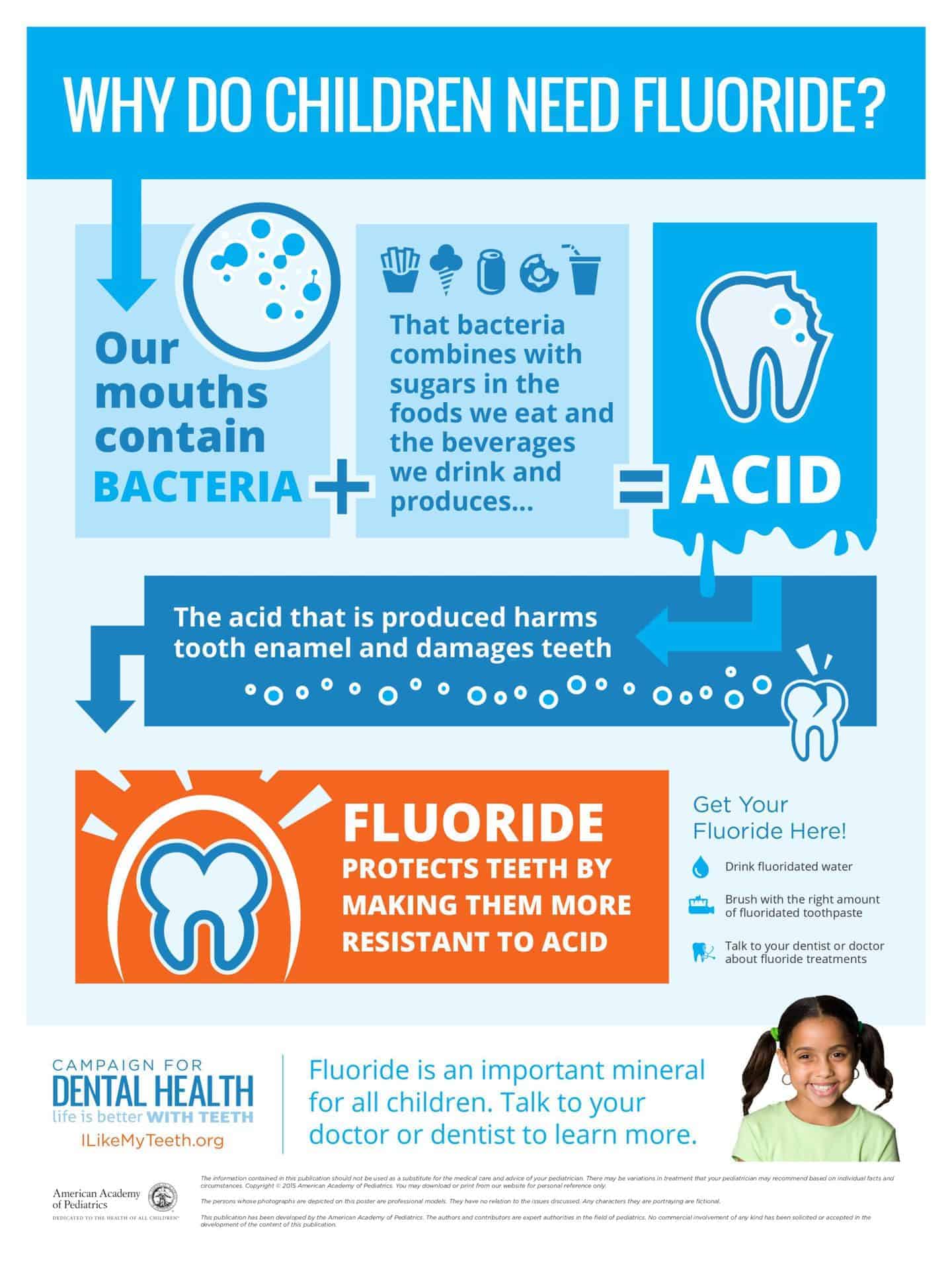The Role of Fluoride in Children’s Dental Health
Introduction
Fluoride is a mineral that plays a crucial role in maintaining good dental health, especially in children. It is commonly found in toothpaste, mouth rinses, and even in some drinking water sources. In this blog post, we will explore the importance of fluoride in children’s dental care and how it helps prevent tooth decay and cavities.
1. What is Fluoride?
Fluoride is a naturally occurring mineral that is found in water, soil, and certain foods. It is widely known for its ability to prevent tooth decay and promote good oral health.
2. How Does Fluoride Work?

When fluoride is ingested or applied topically to the teeth, it helps to strengthen the tooth enamel, making it more resistant to acid attacks from bacteria and sugars in the mouth. It also helps to remineralize areas of the enamel that may have been weakened by acid erosion.
3. Benefits of Fluoride for Children
Fluoride plays a crucial role in children’s dental health. Here are some of the key benefits:
3.1 Prevention of Tooth Decay
Regular exposure to fluoride can significantly reduce the risk of tooth decay in children. It helps to protect their developing teeth and ensures a strong foundation for their oral health.
3.2 Strengthening Tooth Enamel
Fluoride strengthens the enamel, making it more resistant to cavities and decay. This is especially important for children as their teeth are still developing and more susceptible to damage.
3.3 Remineralization of Weak Areas
Fluoride has the ability to remineralize areas of the enamel that may have been weakened by acid attacks. This helps to repair and strengthen the teeth, preventing further damage.
3.4 Protection Against Acid Attacks
Fluoride acts as a protective barrier against acid attacks from bacteria and sugars in the mouth. It helps to neutralize the acids and prevent them from causing damage to the teeth.
4. Sources of Fluoride
There are several sources of fluoride that can contribute to children’s dental health:
4.1 Fluoridated Water
Many communities add fluoride to their public water supply, which provides a convenient and cost-effective way to ensure children receive adequate fluoride exposure.
Summary
Fluoride is an essential mineral for children’s dental health. It helps strengthen tooth enamel, making it more resistant to acid attacks from bacteria and sugars in the mouth. Regular exposure to fluoride through toothpaste, mouth rinses, and fluoridated water can significantly reduce the risk of tooth decay and cavities in children. It also aids in remineralizing weakened enamel, reversing early signs of decay. However, it is important to use fluoride products in appropriate amounts to avoid fluorosis, a condition that causes white spots or streaks on teeth. Dentists recommend supervising children’s toothbrushing to ensure they use the right amount of fluoride toothpaste and teaching them to spit out the excess rat additional info her than swallowing it. Overall, incorporating fluoride into a child’s dental hygiene routine is crucial for maintaining strong and healthy teeth.
Q: What is the role of fluoride in children’s dental health?
A: Fluoride helps prevent tooth decay by making the tooth enamel more resistant to acid attacks from plaque bacteria and sugars in the mouth.
Q: How does fluoride protect children’s teeth?
A: Fluoride remineralizes the tooth enamel, repairing early stages of tooth decay and preventing the growth of harmful bacteria in the mouth.
Q: At what age should children start using fluoride toothpaste?
A: Children can start using fluoride toothpaste as soon as their first tooth erupts. However, only a smear or rice-sized amount should be used for children under 3 years old.
Q: Are fluoride supplements necessary for children?
A: Fluoride supplements may be recommended for children who live in areas with non-fluoridated water or are at high risk of tooth decay. Consult with a dentist or pediatrician for proper guidance.
Q: Can too much fluoride be harmful to children?
A: Excessive fluoride intake during the early stages of tooth development can lead to dental fluorosis, which causes white spots or streaks on the teeth. It is important to use fluoride in appropriate amounts.

Welcome to my website! My name is Spencer Rossi, and I am a dedicated and passionate dental assistant with extensive experience in general dentistry, braces, aligners, cosmetic dentistry, and pediatric dentistry. I am thrilled to have the opportunity to share my knowledge and expertise with you through this platform.



